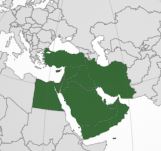| Mon. July 07, 2025 | |

|
|
|
 On July 31st, the assassination of Ismail Haniyeh, the chairman of Hamas's political bureau, in Tehran, sent shockwaves through the global political landscape. Just hours after attending the inauguration of Iranian President Masoud Pezeshkian, Haniyeh, a significant figure in Hamas and former Prime Minister of Palestine in Gaza, was targeted in what appears to be a meticulously orchestrated operation. Known for his efforts in pushing for a ceasefire involving countries like Turkey, Egypt, and Qatar, Haniyeh's death underscores the volatile and perilous nature of Middle Eastern geopolitics. This assassination, attributed to Israel's intelligence agency Mossad, not only jeopardizes the already fragile peace process but also underscores Israel’s profound infiltration capabilities within the region. Prime Minister Benjamin Netanyahu’s administration appears to be sending a clear message: there is no interest in a ceasefire or a political solution to the Gaza conflict. Since the October 7th attacks, Israel's military actions have resulted in over 40,000 Palestinian deaths and the displacement of 2 million Gazans, highlighting the severe humanitarian crisis engulfing the region. The targeting of Haniyeh in Tehran, despite Iran's robust defense apparatus, demonstrates Israel's significant reach and operational capacity within hostile territories. Mossad's ability to execute high-profile assassinations, including political leaders and scientists, not only tarnishes the Iranian regime's credibility but also provokes potential direct involvement in the Gaza conflict. While Tehran has shown restraint, the pressure for retaliation is mounting, with the assassination serving as a direct affront to Iranian sovereignty. Israel's recent military activities extend beyond Gaza, targeting Hezbollah in northern Lebanon, bombarding the Golan Heights, and striking Houthis in Yemen. These actions indicate a broader strategy to destabilize and drag regional actors into the conflict. The potential for a regional war looms large, with Israel seemingly willing to risk broader confrontation to sustain its campaign against Gaza. Israel’s disregard for international law, sovereignty, and humanitarian norms has been starkly evident since the October 7th attacks. Despite international outcry and the calls for a ceasefire, Israel’s actions reflect a "might is right" approach, often supported by Western powers, particularly the United States. The influential Jewish lobby in the U.S., as documented by scholars Stephen Walt and John Mearsheimer, significantly sways American domestic politics and foreign policy in Israel's favor. This alliance has repeatedly shielded Israel from international condemnation, despite its violations of international law and human rights. The international community, notably China and Russia, has voiced strong opposition to Israel’s actions. Both countries have called for a ceasefire and proposed peace initiatives, aiming to unite Palestinian factions and counterbalance Israeli influence. Critics argue that China and Russia seek to distract the U.S. from other geopolitical concerns, such as the war in Ukraine and Indo-Pacific tensions. However, many believe their support for the Palestinian cause aims to bolster their standing in the Global South and the Muslim world. The assassination has elicited strong condemnations from Qatar, Turkey, and Egypt, highlighting the absence of a reliable peace broker in the Gaza conflict. Israel's leadership appears more focused on domestic political gains than on resolving the conflict or addressing humanitarian concerns. While Israel has not publicly acknowledged the assassination, and the U.S. denies involvement, the implications are clear. The international community, especially the West, must recognize the growing global discontent with Israel’s actions. Upholding international norms and advocating for human rights is crucial to maintaining global stability and order. It is imperative for Western nations to join forces with the Global South in holding Israel accountable, pushing for an end to the occupation, and realizing the long-overdue vision of a Palestinian state. Haris Gul is a student of BS International Relations at University of AJK. He can be reached at harisgul063@gmail.com
|
|
| Contact Us | About Us | Donate | Terms & Conditions |
|
All Rights Reserved. Copyright 2002 - 2025
